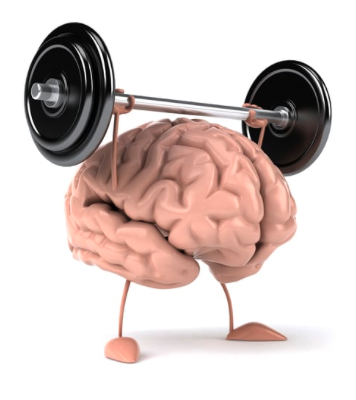|
Written by Mehak Khangura The academic workload of a university student can be hectic and exhausting for the brain due to the deep critical thinking the assignments require. It is common for people to tell university students that being active while studying is good for their mental health. However in a study performed in the US, only 38% of university students maintain the same level of physical activity they did in high school. What if I told you that being active isn’t a hinderece in the busy university life, but actually scientifically proven to help with cognitive function?
Critical thinking and reasoning doesn't end after university. Many graduating students either enter the professional field, or continue their studies. Hence, it is important to ensure that your cognitive health doesn’t decline over the years. Many people have been told that being active improves your brain function, but many people don’t really understand the science behind the correlation between exercise and cognitive health. Therefore this article will break down the basics of how exercise affects your brain. Note: In this article, physical activity doesn’t mean vigorously exercising seven days a week. The term physical activity refers to a wide range of activities, such as walking, swimming, lifting weights, playing sports, as long as they are performed on a regular basis. Did you know that the brain has the ability to change its structure based on environmental influences? The process of the brain changing its structure due to factors other than biological processes is called neuroplasticity. Maintaining an active lifestyle is one factor that impacts different structures in the brain.For instance, the hippocampus is the part of the brain that is involved in learning and memory. A research study done by Erickson and their team showed that older adults that have been regularly active throughout their lifetime had larger hippocampus volumes. Why does it matter if your hippocampus volume is larger? A larger hippocampal volume demonstrates improved memory. Other factors, such as sleep, and mental health also play a role in cognitive function of the brain. For example, when you are stressed, you are causing oxidative stress and inflammation in your brain, which increases the risk of cognitive decline in the future. Physical activity helps with reducing stress by increasing the level of endorphins in the brain. In addition, studies performed by epidemiologists show that physical activity can improve one’s mood, reduce anxiety, and increase confidence. Now that you know the science behind the effects of physical activity, the next time you plan out your day, make room in your schedule to get active! References https://www.ncbi.nlm.nih.gov/pmc/articles/PMC3951958/ https://bmcmedimaging.biomedcentral.com/articles/10.1186/1471-2342-9-17 https://www.ncbi.nlm.nih.gov/pmc/articles/PMC5685070/ https://www.health.harvard.edu/mind-and-mood/exercise-can-boost-your-memory-and-thinking-skills https://www.mayoclinic.org/healthy-lifestyle/stress-management/in-depth/exercise-and-stress/art-20044469 https://www.urologyofva.net/articles/category/healthy-living/3330548/08/01/2019/how-exercise-improves-cognitive-function-and-overall-brain-health
0 Comments
Your comment will be posted after it is approved.
Leave a Reply. |
Categories |


 RSS Feed
RSS Feed